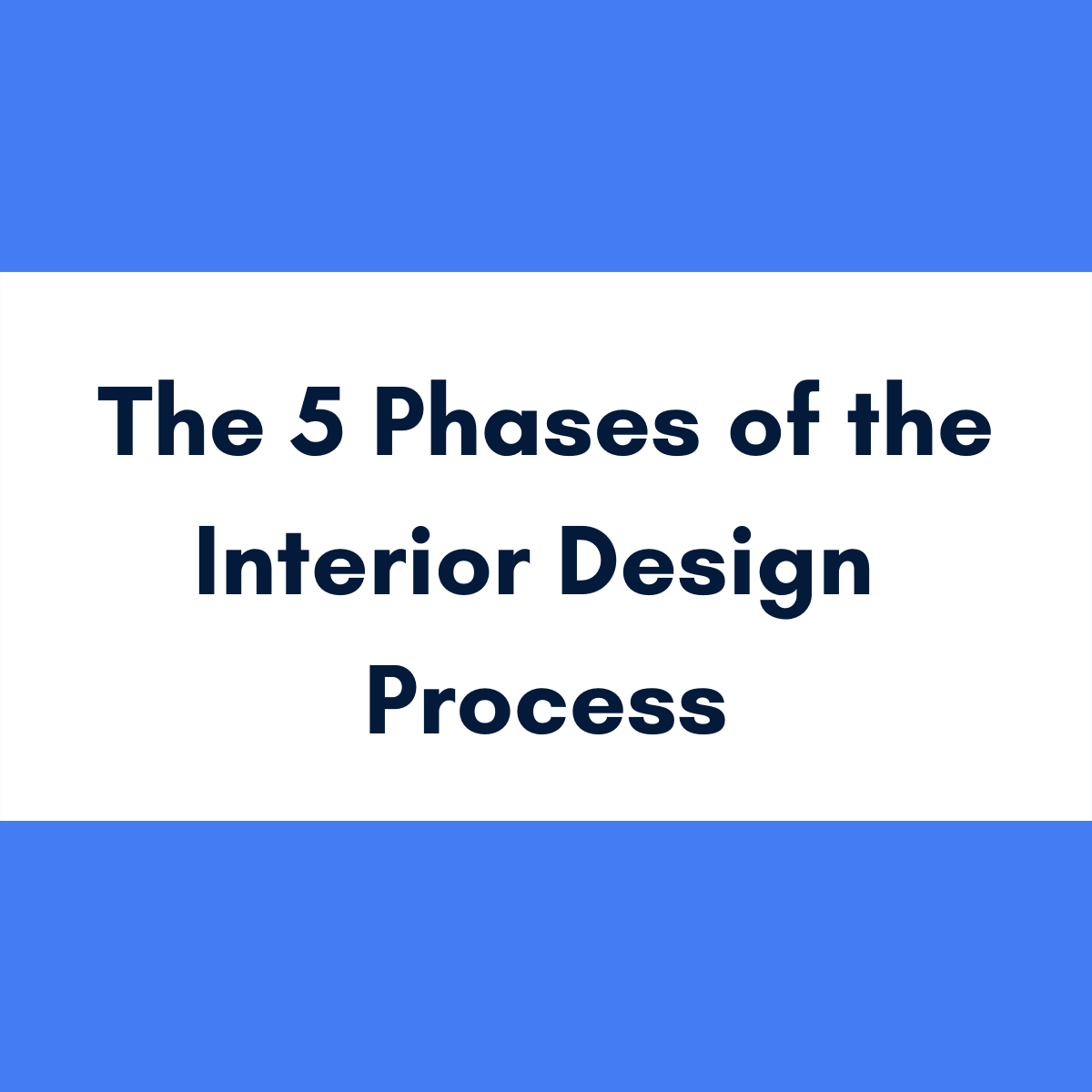Whether you’re an interior designer with years of experience or you’re just taking on your first client, it’s essential for all designers to clearly understand the phases of the interior design process. It is much easier to implement a streamlined system that keeps you organized and saves you time when you know what goes on behind the scenes. Once you have a cut-and-paste system already in place, you won’t need to spend hours planning how to tackle your to-do list for each project. Best of all, you’ll have more time to spend on the personal touches and memorable design details that matter most.
If you are working with the 4Dbiz team of virtual assistants, it is more important than ever to become familiar with the phases of interior design. Our team uses this system to provide organized and efficient support for designers in every project phase. Keep reading for an in-depth look at how our team can guide you through the 5 phases of the interior design process.
1. Conceptual/Schematic Design
When you are approached by a potential client, you might feel a little frazzled. To start, gather all of the information that you think you will need to execute the project successfully. This includes taking field measurements, documenting existing furniture and architectural details, and meeting with the client to discuss their style and budget.
Then it’s time to get the creative juices flowing and come up with a stunner concept that speaks to your client. This will likely involve some type of drafting, whether it is space plans, floor plans, plumbing and electrical plans, or a combination of all of these. You might want to search through lookbooks or participate in vendor walk-throughs to get updates on the latest trends and find inspiration. Our team can help you with your search, collect bids from contractors, and compile a leveling sheet that outlines the scope of work. A concept rendering may be helpful to effectively visualize your ideas in three-dimensional space.
Before you go too far down a rabbit hole, your concept will need to be presented to the client. You should include a roughly estimated budget and the leveling sheet, so that your client has a clear understanding of the time and cost involved. Be sure to get your client to sign off before beginning work on the project.
2. Elements of Design
A client sign-off is your cue to hit the ground running. We can help with sourcing, which includes hard surfaces, soft furnishings, artwork, and accessories. We’ll reach out to vendors for quotes, while also checking lead times and stock availability in the process. We will also arrange your selections on attractive mood boards organized by room, so that you have a visual aid to walk your clients through the specifics during the next presentation. You may also consider requesting a photorealistic rendering from our team to show your final selections.
It’s important to document work carefully so that you can rely on it throughout the project. While mood boards are great visual aids, all furniture selections should be documented in detail on a furniture schedule as well. Elevations are useful for determining artwork size and placement. If the project features custom work or requires a permit, the 4Dbiz team can also complete shop drawings that show exactly how the item or building will be constructed.
3. Debriefs & Revisions
When your concept is fully realized and developed, with specific products and accurate dimensions, it’s time to have another client meeting. Expect your client to provide feedback and if they don’t, ask! Their feedback is extremely valuable because the third phase cannot be completed without it.
Client feedback is followed by one round of revisions. We are happy to assist with them at your request. Common types of revisions may include any or all of the following:
- Realigning the budget
- Sourcing additional or replacement items
- Updating the presentation
- Updating space plans and specification packages
Any changes should be addressed with the client in a final presentation meeting. Once they’ve given their approval, we can coordinate communication with the contractor and submit tear sheets for approval.
4. Orders & Installation
Support from our team is often valued by designers most during the orders and installation phase. A lot of time goes into ordering products, collecting client sign-offs, coordinating shipping, and scheduling installations. Frequent clear communication and accuracy are key. There is a high risk of potential error for the project if you are distracted during this process.
Request help from our virtual assistants to ensure that this phase runs smoothly, so that you can concentrate on other business demands. We will handle as much or as little communication as you desire, prepare an expedited report to help you keep track of order statuses, and develop a project management schedule to follow along the way.
Tip: An important step in this phase is to do a walk-through of the site with all tradespeople and the homeowner present before construction actually begins. During the site visit, you can hash out any details that need to be clarified and, if necessary, revise orders if necessary before it’s too late.
5. Project Management
The fifth and final phase of the interior design process is project management. It involves tracking the progress of the project through site visits, order updates, and constant communication.
4Dbiz offers optional project management services from project concept to completion. Our team can handle site visit coordination, weekly communication with contractors, client reports and updates, and vendor communication.
Schedule a demo to learn more about how our experienced team can support you and your business through all phases of the interior design process!

